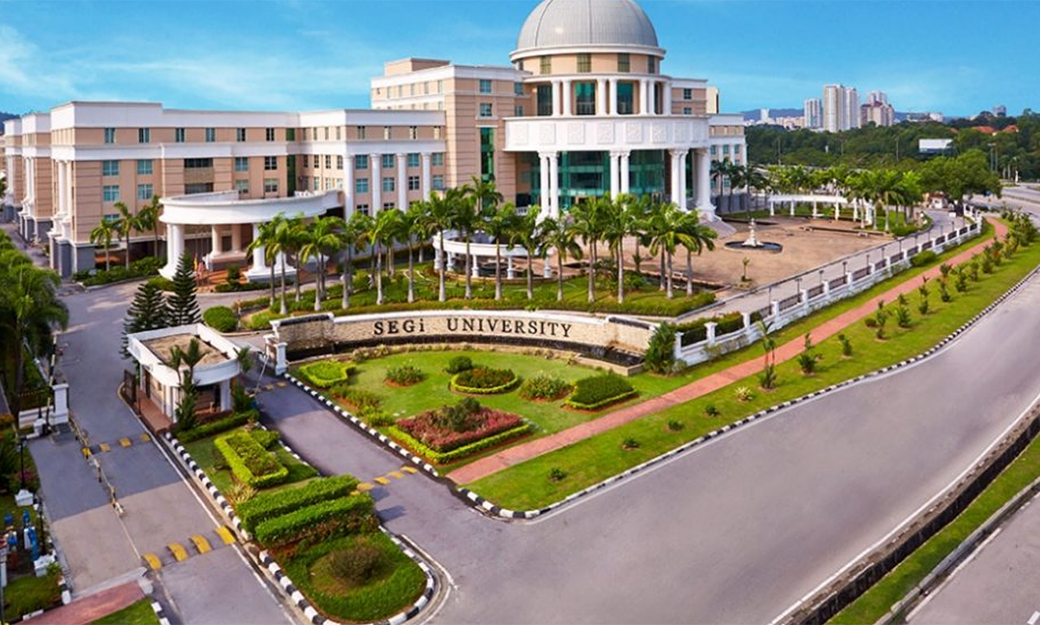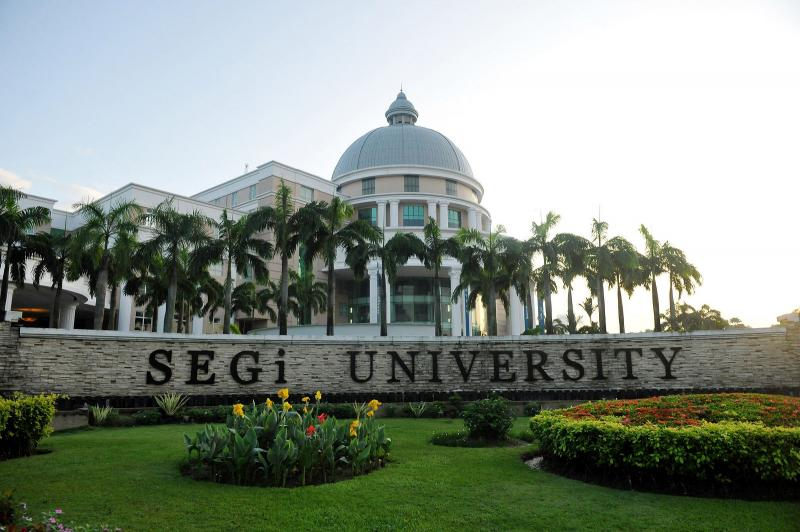Workshop Title:
The Role of Artificial Intelligence in Enhancing Community Health Research
Date:
January 10th, 2025 (GMT+8)
Organizer:
Faculty of Education, Languages, Psychology and Music SEGi University
Keywords:
- Public health
- Policy
- Drug discovery
- Health interventions
- Disease surveillance
- Outbreak detection
Workshop Chair:
Personal Bio:
Associate Professor, Dr. Sheiladevi Sukumaran is a program leader and senior lecture in SEGi University. She obtained her Bachelor of Science (Hons), Master's in Science and Doctor of Philosophy in Education Management from the University of Malaya. Her job scope currently is managing research postgraduate students. She has taught subjects like Research Method and Statistics, Biochemistry, Cell Biology, Psychology, Human Anatomy and Physiology. Her interest in research involving Biotechnology, STEM, Science and Technology. She currently involved in numerous research includes FRGS, Grant Program Pembangunan Masa Depan Malaysia, REIG Grants, Seed Grant, PSIF grants and two Segi University Internal Grants. She also has several Scopus publications, ebook, conference proceeding publication and poster presentation. One of the publications in Asia Pacific Journal Molecular Biology and Biotechnology, that won best poster is Knowledge, Attitude and Perception towards Cancer Prevention Practice among Public in Putrajaya Cancer. She has four industrial collaborations that involved eye specialist center, natural product, health device industry and berry product distributor. She is also actively involved in National STEM Malaysia organizing many activities in school and higher education level.
Workshop Committee Members
- Associate Professor Ts Dr. Sheiladevi Sukumaran, Faculty of Education, languages, Psychology and Music, sheiladevisukumaran@segi.edu.my
- Nurul Khair, Faculty of Education, languages, Psychology and Music, nurulsalwanakhair@segi.edu.my
Workshop Description:
Background:
Artificial Intelligence (AI) has rapidly emerged as a powerful tool in various fields, including healthcare. Its potential to revolutionize community health research is immense. By leveraging AI, researchers can gain valuable insights, improve disease surveillance, develop personalized interventions, accelerate drug discovery, and inform public health policies. This workshop will be held in one of the private universities with bachelor and postgraduate students group.
Goal/Rationale:
This workshop aims to explore how AI can be effectively integrated into community health research to improve public health outcomes. By bringing together experts from the fields of AI, community health, and public health, the workshop will foster collaboration, knowledge sharing, and the development of innovative approaches to harness AI's power for public health's benefit.
Scope and Information for Participants:
The workshop will cover a wide range of topics related to AI in community health research, including:
- AI applications in community health: Exploring the various ways AI can be used to address community health challenges, such as disease surveillance, outbreak detection, personalized interventions, and drug discovery.
- Ethical considerations in AI: Discussing the ethical implications of using AI in community health research, including issues of data privacy, bias, and accountability.
- Technical challenges and solutions: Addressing the technical challenges associated with AI implementation, such as data quality, algorithm development, and scalability.
- Case studies and best practices: Sharing successful examples of AI applications in community health research and identifying best practices for implementation.
Participants from higher education institutions will have the opportunity to:
- Learn about the latest advancements in AI and their potential applications in community health research.
- Network with experts in the field and establish collaborations.
- Gain practical insights into the challenges and opportunities of AI implementation.
- Develop ideas for future research projects and initiatives.
- Contribute to the development of ethical guidelines for AI in community health research.
By participating in this workshop, participants will be well-equipped to integrate AI into their own research and contribute to the advancement of public health.
Highlight
The workshop The Role of Artificial Intelligence in Enhancing Community Health Research on 10th January 2025 from 10 am-11.30 am. Around 16 participants attended the workshop. It explored the potential of Artificial Intelligence (AI) to revolutionize community health research. AI's ability to analyze vast datasets and identify patterns offers significant advantages. Firstly, AI accelerates data analysis, uncovering hidden insights from electronic health records and social determinants of health. This frees up researchers' time for interpretation and faster research progress. Secondly, AI aids in predictive modelling, allowing for early disease detection and optimized resource allocation. Additionally, AI facilitates personalized medicine through tailored treatment plans. Thirdly, AI expedites drug discovery by identifying potential drug candidates and optimizing clinical trials. It can also improve drug safety by analyzing data to detect potential risks early on. While the benefits are substantial, ethical considerations regarding data privacy, algorithmic bias, transparency, and a human-centered approach must be addressed. The future of AI in community health research is bright. Responsible AI use can enhance data-driven decisions, empower community engagement, accelerate drug discovery, and advance precision medicine. However, achieving this potential requires collaboration between researchers, clinicians, policymakers, and technology experts.






Access to Workshop:ICMMGH 2026 Workshop -- Petaling Jaya - YouTube
Venue:
9, Jalan Teknologi, Pju 5 Kota Damansara, 47810 Petaling Jaya, Selangor, Malaysia

VISA:
While there are several citizens who can travel to Malaysia visa free, many foreign nationals are required to obtain a tourist visa to enter the country. The Government of Malaysia introduced an electronic visa system on March 2017 to simplify the process of obtaining a visa to travel to and around Malaysia.
The tourist eVisa for Malaysia and the eNTRI online visa were both implemented to promote tourism and encourage foreign nationals to visit this beautiful country.
Citizens of the following eligible countries can easily obtain their Malaysia tourist visa through an online form.
Malaysia Tourist Visa | Malaysia My Visa
What you need to do
- Valid passport
- Passport-sized photo (see the complete Photo Requirements to apply for Malaysia Visa | Malaysia My Visa for more information)
- Confirmed return flight reservation.
- Minor applicants will require a birth certificate.
Nationals of these countries can apply for their tourist visa from anywhere in the world, except while being in Malaysia or Singapore.
The approved tourist eVisa for Malaysia will be sent to the applicant's email. The traveler can print it out to present upon arrival.
The following documents are also necessary to enter Malaysia:
- Printed eVisa
- Valid passport
- Confirmed return flight reservation
- Proof of accommodation
- Sufficient funds for expenses while in Malaysia (credit or debit card/cash/traveler's cheque) The Malaysia tourist visa holder can stay in Malaysia for a period of up to 30 days. The tourist eVisa for Malaysia also allows multiple entries into the country.
Malaysia Tourist Visa Status Check
All notifications and updates will be sent to the applicant by email. It is therefore absolutely essential that applicants provide a functional email address so that they can be properly kept fully up to date with the application process. The majority of applications for the tourist visa are processed within 1 business day, and as soon as an application has been approved the traveler will be notified immediately.
